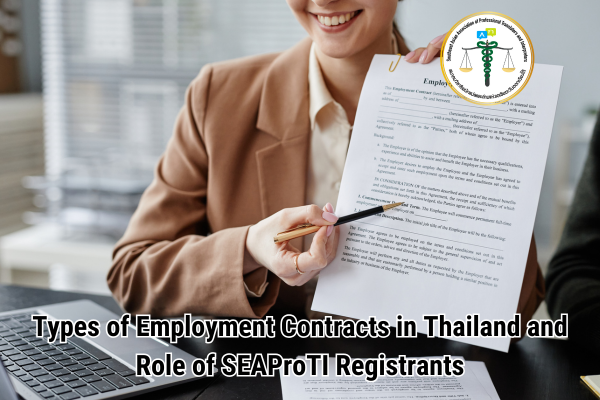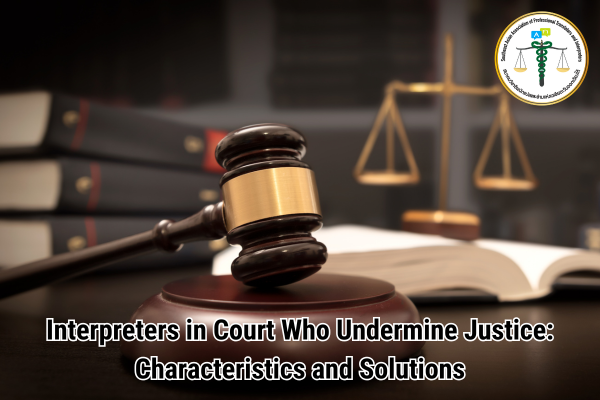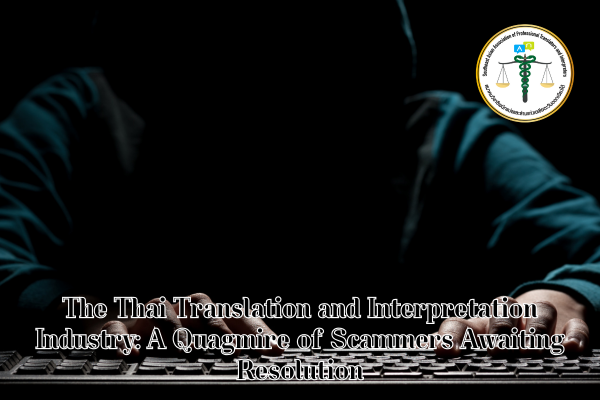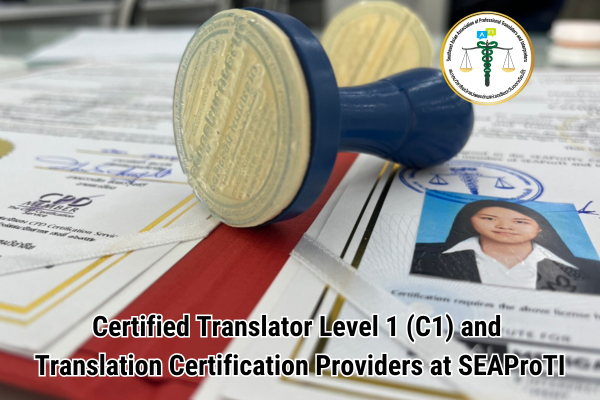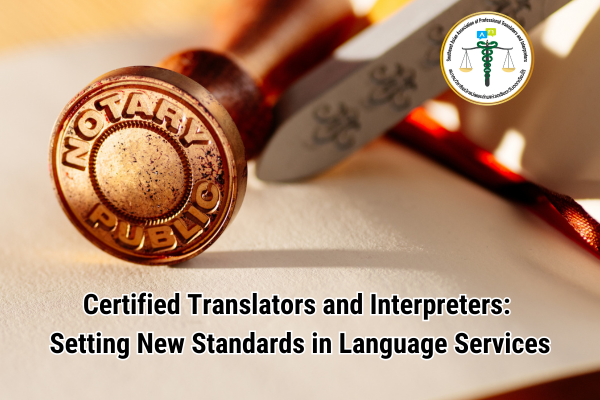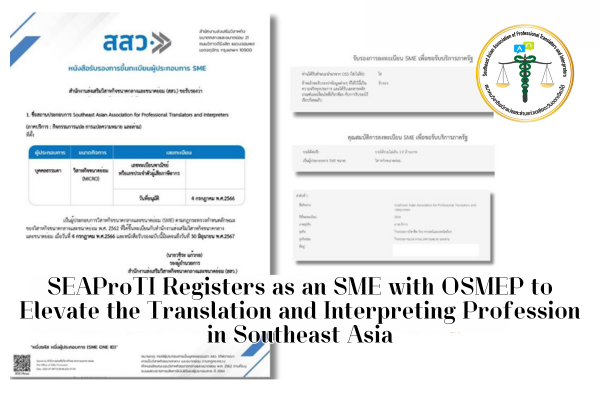Types of Employment Contracts in Thailand and the Role of SEAProTI Registrants
31 January 2025, Bangkok – In Thailand, employment contracts are classified into two main types:
-
Fixed-term Employment Contract
- Specifies a definite period of employment, such as six months, one year, or for a specific project.
- Cannot be terminated before the contract expires unless the employee commits a serious offense under the law.
- Cannot be used to evade legal obligations, such as avoiding employee benefits.
- Benefits the employer because no severance pay is required when the contract ends as scheduled.
-
Indefinite-term Employment Contract
- Has no predetermined end date.
- If termination occurs, the employee is entitled to severance pay according to Thai labor law.
- Benefits the employee as it provides job security and more labor rights.
Contract for Work and the Jurisdiction of the Labor Court
- Employment Contracts fall under the jurisdiction of the Labor Court since they govern rights and obligations between employers and employees under labor protection laws.
- Contracts for Work (Service Contracts) are not considered employment contracts because they involve hiring someone for a specific task without employer supervision, making them subject to Civil Court jurisdiction instead.
- Cases that may go to the Civil Court or Arbitration include:
- Disputes over compensation in a service contract (not wages under labor law).
- Disputes between companies and independent contractors or consultants.
- Cases where employment contracts include an arbitration clause (e.g., disputes involving senior executives).
Role of SEAProTI-Certified Translators, Translation Verifiers, and Court Interpreters in Labor Cases
In labor disputes involving foreign nationals, SEAProTI-certified translators and interpreters play a crucial role:
-
Certified Translator
- Translates critical legal documents for labor cases, such as:
- Employment contracts
- Payslips
- Termination letters
- Provides certified translations to ensure legal validity.
- Translates critical legal documents for labor cases, such as:
-
Certified Translation Verifier
- Reviews and verifies the accuracy of translated documents.
- Certifies translated documents for official use in the Labor Court or government agencies.
-
Certified Court Interpreter
- Serves as an interpreter in the Labor Court for foreign nationals who do not speak Thai.
- Ensures that defendants, plaintiffs, or witnesses can fully understand and communicate during proceedings.
- SEAProTI-certified interpreters meet professional standards and are officially recognized for court proceedings.
Summary
- Employment contracts can be either fixed-term or indefinite-term, affecting the rights of both employers and employees.
- Employment contract disputes fall under the jurisdiction of the Labor Court, while service contract disputes are handled by the Civil Court.
- SEAProTI-certified translators and interpreters play a key role in labor cases by facilitating communication and ensuring legal accuracy in document translation and court interpretation.
SEAProTI’s certified translators, translation certification providers, and certified interpreters:
The Southeast Asian Association of Professional Translators and Interpreters (SEAProTI) has officially announced the criteria and qualifications for individuals to register as “Certified Translators,” “Translation Certification Providers,” and “Certified Interpreters” under the association’s regulations. These guidelines are detailed in Sections 9 and 10 of the Royal Thai Government Gazette, issued by the Secretariat of the Cabinet under the Office of the Prime Minister of the Kingdom of Thailand, dated July 25, 2024, Volume 141, Part 66 Ng, Page 100.
To read the full publication, visit: the Royal Thai Government Gazette
ประเภทของสัญญาจ้างแรงงานในประเทศไทย
31 มกราคม 2568, กรุงเทพมหานคร – ในประเทศไทย สัญญาจ้างแรงงาน แบ่งออกเป็น 2 ประเภทหลัก ได้แก่:
-
สัญญาจ้างแรงงานมีกำหนดระยะเวลา (Fixed-term Employment Contract)
- มีการกำหนดระยะเวลาแน่นอนของการจ้างงาน เช่น 6 เดือน, 1 ปี หรือเป็นโครงการเฉพาะ
- ไม่สามารถเลิกจ้างก่อนครบกำหนดได้ เว้นแต่ลูกจ้างทำผิดร้ายแรงตามกฎหมาย
- ไม่สามารถใช้เพื่อหลีกเลี่ยงภาระทางกฎหมาย เช่น หลีกเลี่ยงการให้สิทธิประโยชน์พนักงาน
- ประโยชน์ตกแก่ นายจ้าง เพราะไม่ต้องจ่ายค่าชดเชยเมื่อสัญญาสิ้นสุดตามกำหนด
-
สัญญาจ้างแรงงานที่ไม่มีกำหนดระยะเวลา (Indefinite-term Employment Contract)
- ไม่มีการกำหนดระยะเวลาสิ้นสุดของสัญญา
- หากมีการเลิกจ้าง ลูกจ้างมีสิทธิได้รับค่าชดเชยตามกฎหมายแรงงานไทย
- ประโยชน์ตกแก่ ลูกจ้าง เพราะได้รับความมั่นคงในงานและมีสิทธิประโยชน์ด้านแรงงานมากกว่า
สัญญาจ้างทำของ กับ ศาลแรงงาน
- สัญญาจ้างแรงงาน (Employment Contract) อยู่ในขอบเขตของ ศาลแรงงาน เพราะเป็นเรื่องของสิทธิและหน้าที่ระหว่างนายจ้างและลูกจ้างตามกฎหมายคุ้มครองแรงงาน
- สัญญาจ้างทำของ (Contract for Work) ไม่ถือเป็นสัญญาจ้างแรงงาน เนื่องจากเป็นการจ้างให้ทำงานเฉพาะอย่าง ไม่อยู่ภายใต้การบังคับบัญชาเหมือนลูกจ้างปกติ จึงอยู่ในขอบเขตของ ศาลแพ่ง แทน
- กรณีที่สามารถไปศาลแพ่งหรืออนุญาโตตุลาการ ได้แก่:
- กรณีพิพาทเกี่ยวกับค่าจ้างในสัญญาจ้างทำของ (ไม่ใช่ค่าจ้างลูกจ้างปกติ)
- กรณีข้อพิพาทระหว่างบริษัทและที่ปรึกษาหรือผู้รับเหมาอิสระ
- กรณีที่มีข้อกำหนดให้ใช้ อนุญาโตตุลาการ ในสัญญาจ้างแรงงาน (เช่น ข้อพิพาทระหว่างนายจ้างและลูกจ้างระดับผู้บริหาร)
บทบาทของนักแปลรับรอง ผู้รับรองการแปล และล่ามรับรองของ SEAProTI ในคดีแรงงาน
ในคดีแรงงานที่เกี่ยวข้องกับชาวต่างชาติ นักแปลและล่ามที่ได้รับการรับรองจาก SEAProTI มีบทบาทสำคัญดังนี้:
-
นักแปลรับรอง (Certified Translator)
- ทำหน้าที่แปลเอกสารสำคัญที่ใช้ในกระบวนการพิจารณาคดี เช่น
- สัญญาจ้างแรงงาน
- เอกสารเงินเดือน (Payslip)
- หนังสือเลิกจ้าง
- แปลและรับรองความถูกต้องเพื่อให้เอกสารมีผลทางกฎหมาย
- ทำหน้าที่แปลเอกสารสำคัญที่ใช้ในกระบวนการพิจารณาคดี เช่น
-
ผู้รับรองการแปล (Certified Translation Verifier)
- ตรวจสอบคุณภาพของงานแปลจากนักแปลรับรอง
- รับรองความถูกต้องของเอกสารแปลให้สามารถใช้ในศาลแรงงานหรือหน่วยงานภาครัฐได้
-
ล่ามรับรอง (Certified Court Interpreter)
- ทำหน้าที่เป็นล่ามในศาลแรงงานสำหรับชาวต่างชาติที่ไม่สามารถใช้ภาษาไทยได้
- ช่วยให้จำเลย โจทก์ หรือพยาน เข้าใจและสื่อสารได้อย่างถูกต้อง
- ล่ามรับรองของ SEAProTI ได้รับการรับรองว่ามีมาตรฐานและสามารถปฏิบัติหน้าที่ในศาลได้อย่างเป็นทางการ
สรุป
- สัญญาจ้างแรงงานมีทั้งแบบมีกำหนดและไม่มีกำหนดระยะเวลา ซึ่งส่งผลกระทบต่อสิทธิของลูกจ้างและนายจ้าง
- สัญญาจ้างแรงงานอยู่ภายใต้ศาลแรงงาน แต่สัญญาจ้างทำของอยู่ภายใต้ศาลแพ่ง
- นักแปลและล่ามที่ได้รับการรับรองจาก SEAProTI มีบทบาทสำคัญในคดีแรงงาน โดยช่วยในการแปลและล่ามในกระบวนการพิจารณาคดีเพื่อให้เกิดความเป็นธรรม
เกี่ยวกับนักแปลรับรอง ผู้รับรองการแปล และล่ามรับรองของสมาคมวิชาชีพนักแปลและล่ามแห่งเอเชียตะวันออกเฉียงใต้
สมาคมวิชาชีพนักแปลและล่ามแห่งเอเชียตะวันออกเฉียงใต้ (SEAProTI) ได้ประกาศหลักเกณฑ์และคุณสมบัติผู้ที่ขึ้นทะเบียนเป็น “นักแปลรับรอง (Certified Translators) และผู้รับรองการแปล (Translation Certification Providers) และล่ามรับรอง (Certified Interpreters)” ของสมาคม หมวดที่ 9 และหมวดที่ 10 ในราชกิจจานุเบกษา ของสำนักเลขาธิการคณะรัฐมนตรี ในสำนักนายกรัฐมนตรี แห่งราชอาณาจักรไทย ลงวันที่ 25 ก.ค. 2567 เล่มที่ 141 ตอนที่ 66 ง หน้า 100 อ่านฉบับเต็มได้ที่: นักแปลรับรอง ผู้รับรองการแปล และล่ามรับรอง


